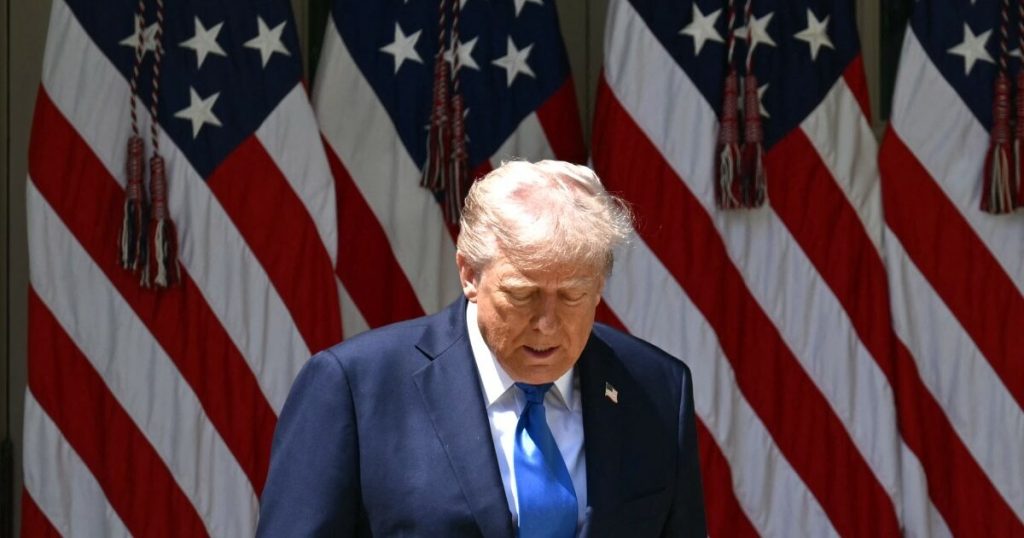The United States has announced visa restrictions on Palestinian Authority officials amidst a growing international movement to recognize Palestinian statehood. This move comes in the wake of several nations, including France and Canada, signaling their intent to recognize a Palestinian state at the upcoming UN General Assembly in September. The US action is likely to complicate the attendance of Palestinian leaders at this crucial meeting and highlights the escalating tensions between the US and its allies over the Palestinian issue. While some countries advocate for a two-state solution as the path to peace, the US remains firmly opposed to any unilateral recognition of a Palestinian state, viewing it as counterproductive to the peace process. The US administration’s decision reflects its long-standing policy of aligning closely with Israel, a position reinforced by the recent Hamas attack and the subsequent Israeli military response in Gaza.
The US State Department justified the visa restrictions by accusing the Palestine Liberation Organization (PLO) and the Palestinian Authority (PA) of “internationalizing” the conflict with Israel through legal avenues like the International Criminal Court (ICC) and the International Court of Justice (ICJ). Furthermore, the US alleges that these organizations continue to support terrorism through incitement, glorification of violence, and financial aid to terrorists and their families. This rationale echoes previous US actions, such as sanctions imposed on ICC judges for their investigation of Israeli leaders over the Gaza war. The US views these actions as politically motivated and detrimental to the pursuit of peace. The US position contrasts sharply with the view held by many international actors who believe that holding individuals accountable for war crimes is essential for achieving a just and lasting peace.
The announcement drew immediate praise from Israeli Foreign Minister Gideon Saar, who commended the US for its “moral clarity.” Saar reiterated the US accusations, blaming the PA for financially rewarding terrorists and their families, and for promoting anti-Israel sentiment through various channels including education, religious institutions, and media. He criticized countries supporting Palestinian statehood for overlooking what he perceives as the PA’s complicity in terrorism and incitement. This exchange underscores the deep divisions over the role and responsibility of the Palestinian Authority in the ongoing conflict. While Israel and the US view the PA as actively promoting violence, other nations see it as a potential partner for peace, albeit one weakened by internal divisions and external pressures.
The Palestinian Authority, led by Mahmoud Abbas, has long been considered a key player in the Israeli-Palestinian peace process. The PA administers parts of the Israeli-occupied West Bank, home to millions of Palestinians and hundreds of thousands of Israeli settlers residing in settlements deemed illegal under international law. The PA’s authority does not extend to the Gaza Strip, which is controlled by Hamas, a militant group designated as a terrorist organization by the US, Israel, and several other countries. Hamas seized control of Gaza in 2007 after winning legislative elections and ousting Fatah, the dominant party within the PLO. The division between the West Bank and Gaza has further complicated the prospects for a two-state solution, creating distinct political and administrative entities.
The international community, including Arab and Western nations, hopes for a scenario where the currently weakened PA plays a significant role in governing Gaza after the current conflict subsides. However, the complexities of the situation on the ground, with Hamas firmly entrenched in Gaza, make this a challenging prospect. The ongoing violence and the deep distrust between the parties further exacerbate the difficulties in achieving a unified Palestinian governance structure.
The US administration under President Donald Trump has consistently demonstrated unwavering support for Israel, a stance reflected in frequent meetings between Trump and Israeli Prime Minister Benjamin Netanyahu. While the US outwardly seeks a ceasefire in Gaza, its strong backing of Israel and its criticism of the Palestinian Authority as ineffective and corrupt contribute to the perception of bias in its approach to the conflict. This perceived bias undermines US credibility as a mediator and makes it harder to achieve a lasting resolution to the decades-long conflict. The US’s actions risk further isolating the Palestinians and empowering hardliners on both sides, making the path to peace even more arduous.


